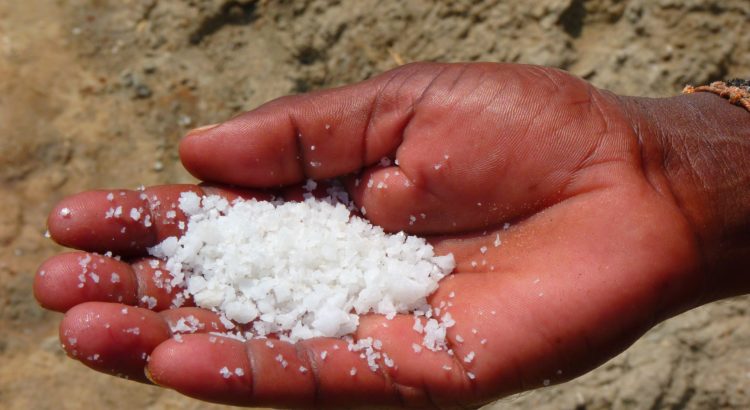Isaiah 58:1-9a, [9b-12]; Psalm 112:1-9 [10]; 1 Corinthians 2:1-12, [13-16]; Matthew 5:13-20
I can still remember the angriest I ever got in seminary. It started, I am not surprised to notice upon reflection, with me sticking my nose into someone else’s business.
Two of my international student classmates were having a heated conversation about the interpretation of scripture. One was an evangelical man from East Africa, one a high church woman from Southern Africa. They had very different approaches.
I entered the fray with some arrogant Western comment about how there was no such thing as a talking snake and no such thing as “the plain sense of scripture.”
“And don’t even get me started on parables,” I huffed. “Surely if Jesus wanted us to take the scriptures literally, he wouldn’t have chosen such an ambiguous mode of teaching.”
“My friend, what is ambiguous about the parables?” he asked. He was perfectly calm.
“What about ‘You are the salt of the Earth!’How can we possibly know what that’s supposed to mean?!”
And then he told me. Calmly, confidently, convincingly. I honestly can’t remember what exactly he said, but it was probably not so different from what I’m about to share with you.
The argument, of course, went on and on, well past when we needed to get our dishes back to the kitchen. Long enough that temporary onlookers asked me about it the next day. Long enough that our other classmate lost interest and left. Long enough that I’m still embarrassed about how I behaved.
I was salty. My friend was…salt.
Don’t get me wrong, I still believe what I said about interpreting scripture—and for that matter about how the whole point of parables is that they speak in many ways.
But my friend knew something I didn’t yet: That we have to make our own sense of scripture throughout our lives—and then we have to believe it. That doesn’t mean we don’t sometimes change our mind. It doesn’t mean we don’t listen to others’ viewpoints. It doesn’t even mean we don’t occasionally throw up our hands and say, “I’ve got nothing here.”
It does mean we do our best with the material in front of us. I think part of the point of today’s material is that “salt-of-the-earth” people are like my friend:
They’re confident, but humble. They know they have a role to play, but they don’t draw attention to themselves, at least not just for attention’s sake. As a bishop once pointed out to me, Jesus didn’t say, “You are the pepper of the earth.” This doesn’t mean salt of the earth people won’t occasionally serve, as the prophets often did, as salt in the wounds of those who stand in the way of justice. Salt of the earth is not intended to be trampled underfoot, by presidents or anyone else.
Like salt, Christians are also called to be reliable, in for the long haul. More on “losing our saltiness” in a minute, but of course that very suggestion is alarming because it’s not an idea we’re familiar with. We learned in high school chemistry that if equal parts sodium and chlorine are doing their ionically bonded chemical thing, they form a strong matrix of interconnection with a practically unlimited shelf life. To be the salt of the earth is to run with patience our own race and to encourage all those runners we’re bonded to.
(By the way, if you’re tallying mixed metaphors, I think we’re bound for the double digits by the time the morning is out. My only defense is that Jesus racked up quite a number himself this week.)
**
Confident, humble, reliable, encouraging. If you’re starting to picture someone in your life who is “salt of the earth,” then I think this rhetorical device is doing the work Jesus needs it to do. Because, of course, we draw on metaphors and parables when we’re trying to get at some subtle quality or combination thereof, to put our fingers on a common experience that is hard to describe but easy to recognize.
As I prayed about the gospel passage this week, I thought immediately of several members of one of the communities I’m a part of this semester. I’m taking a course on research methods grounded in civic and social participation, and our convening theme is “Youth and Wellbeing in an Age of Mass Incarceration.” To lay the groundwork for that theme, we watched on Monday a film that has been screened here at St. Michael’s but that I had not yet seen: Ava DuVernáy’s shattering Netflix documentary 13th.
If you don’t know the film, it explores the legacy of an exception in the constitutional amendment that banned slavery and involuntary servitude: “except as punishment for a crime.”
I thought I understood and could enumerate the many ways American society has found to demonize and criminalize black and brown bodies, and black and brown communities. But if you haven’t seen the film yet, all I can say is that to have those dots vividly connected through generations of policies that intentionally and effectively passed the baton of racial oppression … well it left us all speechless, regardless of how many times each of us had seen the film.
Our class has a “Vegas rule,” as in “What happens in Vegas stays in Vegas.” But I think I can be faithful to that rule and make a general comment about the experience. I estimate that 60% or so of the folks in this class are people of color. A common theme among their reflections was how hard it is to live in our society without hating it, and to be engaged in racial justice work without giving up. And yet here they are, enrolled in a course that by the second class session had all of us feeling nauseous and worse about the reality behind and before us. When I hear the phrase “salt of the earth” this week, I cannot help but see their faces, give thanks for their witness, and continue seeking ways to do my part.
**
I don’t have to tell you that our society needs “salt of the earth” people very badly at the moment. Not just to defend the human rights and human dignity of immigrants and refugees. Not just to counter rhetoric that scapegoats and antagonizes Muslims and poor communities of color. Not just to defend our ailing environment. Not just to strive for responsible global citizenship at a time when we are more interconnected than ever.
We need such people because all of us are bound to lose our saltiness from time to time in the days and years to come. “Have salt in yourselves,” Jesus says in Mark’s version of this mini-parable. But might I suggest that when that fails, have salt in those around you. Check in with each other. Show kindness to one another. Find joy whenever you can, and share it like a lamp on a lampstand.
Most of all, we need “salt of the earth” people because without salt, none of us has a chance at our most difficult challenge: striving to do what is right without also wanting to win. It is very hard to keep those two things separate, but I believe our futures and our very souls depend on it.
That’s not to say we aren’t witnessing and participating in genuine struggles whose outcomes matter, nor that those outcomes won’t produce the feelings associated with winning and losing.
But honest to God, I think this is the full point of these parables. Salt doesn’t win out against blandness, it’s simply there, transforming the dish by its presence. Light doesn’t defeat darkness, but even a little of the former changes our experience of the latter. A city built on a hill isn’t intrinsically better than one built in the valley—it’s just there for us to see when we look to the skies.
I don’t know how to work for what I think is right and also not want to win. That’s why I’m glad Jesus assures us we are salt of the earth and not that we should try to be.
My seminary classmate probably did want to convince me of the importance of interpreting scripture a particular way. As it turns out, he didn’t, nor of course did I convince him.
But in resisting the temptation to win the argument for winning’s sake, he certainly convinced me that he knew what it means to be salt.

